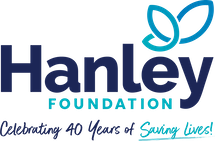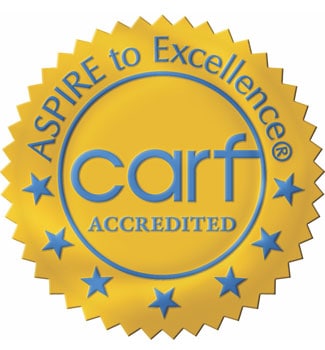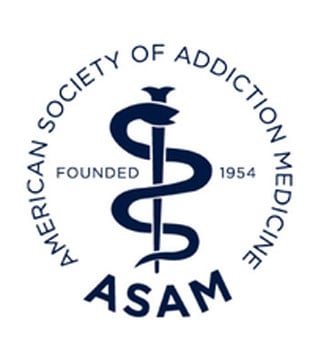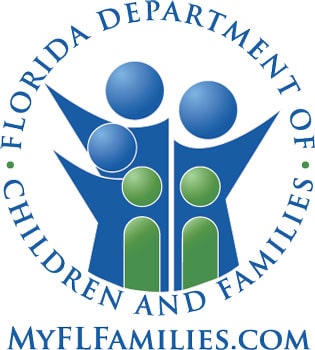Heroin Addiction

Heroin is a powerful opioid drug that can quickly lead to physical dependence and intense psychological cravings.
Keep reading to learn what heroin addiction is, why it can be so dangerous, and available heroin addiction treatment programs.
What is Heroin Addiction?
Heroin addiction is a chronic condition where a person becomes physically and psychologically dependent on the drug. It can develop surprisingly fast, often within just two to three weeks of regular use. As the body builds a tolerance to the drug, those struggling with heroin addiction require larger doses to achieve the same effects—trapping them in a dangerous and escalating cycle.
For many, quitting heroin feels nearly impossible. Many long-term users find that heroin no longer brings them any pleasure. However, they continue using it to avoid painful withdrawal symptoms and satisfy overwhelming cravings.
TYPES OF ADDICTIONS
Heroin Addiction Symptoms
Recognizing the signs of heroin addiction is crucial for early intervention. Here are some common symptoms:
- Using the drug regularly or repeatedly.
- Taking larger doses or using more frequently than intended.
- Wanting to quit or cut back but being unable to do so.
- Spending a lot of time and effort to get, use, and recover from opioids.
- Experiencing regular, intense cravings.
- Neglecting responsibilities at home, work, or school.
- Giving up on activities, hobbies, and interests that were once enjoyable.
- Continuing use despite negative consequences.
- Needing larger doses to achieve the same effect.
Identifying these symptoms can help prevent the cycle of addiction from worsening and allow individuals to seek appropriate heroin addiction treatment.
The Effects of Heroin
Heroin not only alters your brain’s chemistry, but it also takes a toll on your emotional well-being, making recovery feel out of reach.
These changes can negatively impact your brain’s ability to regulate mood, behavior, and decision-making.
Chronic or repeated heroin use increases your risk of severe physical issues, including:
- Difficulty breathing, lung infections, and permanent damage to the respiratory system.
- Heart infections, damaged blood vessels, and an increased risk of heart attack or stroke.
- Liver and kidney disease.
- Weakened immune system.
Beyond these physical health risks, abruptly stopping heroin use can lead to severe withdrawal symptoms, making it difficult to quit on your own.
Heroin Withdrawal Symptoms
Withdrawal symptoms across all opioids are comparable. However, they can range in severity depending on usage patterns, frequency, and dosage. Common heroin withdrawal symptoms include:
Short-term symptoms
- Rapid pulse, increased blood pressure
- Shortness of breath
- Increased body temperature
- Cold sweats, goosebumps, tremors
- Fatigue and insomnia
- Dilated pupils
- Watery eyes and runny nose
- Muscle spasms, cramps, joint pain, bone pain
- Nausea, vomiting, diarrhea
Long-term symptoms
- Anxiety, depression
- Continued fatigue and insomnia
- General malaise
- Agitation, irritability, and restlessness
- Short-term memory problems, impaired concentration, confusion
- Intense drug cravings
Detoxification
Detoxing from heroin on your own can be dangerous and overwhelming.
The safest way to detox from heroin is under medical supervision in a treatment center to ensure you are supported every step of the way. These programs provide:
- Medication assistance to help ease withdrawal symptoms.
- Medical monitoring to ensure your safety throughout the entire process.
- Emotional and psychological monitoring and support to help manage cravings and address co-occurring mental health disorders, if needed.

Heroin Addiction Treatment Program
At Hanley Center, we provide comprehensive, around-the-clock inpatient care, partial hospitalization programs, and outpatient rehab programs for several types of addiction. Our treatment approach is clinically sophisticated, holistic, and tailored to each individual, ensuring the best chance for lifelong recovery.
Treatment Options
Our treatment options are designed to meet you wherever you are in your recovery journey, offering personalized care based on your level of need. These include:
- Inpatient Rehab
A 24/7 residential treatment program where you can receive intensive care, medical monitoring, and therapeutic support, allowing you to focus on restoring your physical, mental, and spiritual wellness. - Partial Hospitalization Program (PHP)
A more flexible program where you can receive a high level of care during the day and return home or to a sober living facility in the evening. We offer 30 hours of programming each week. Typical patients spend 30 days in our PHP program. - Intensive Outpatient Program (IOP)
This program allows you to maintain your daily responsibilities while attending regular therapy sessions and receiving ongoing support. This program is best suited for individuals who do not require residential treatment or are returning home after residential treatment.

Start Your Recovery Journey Today
The road to recovery can be challenging, but with our expert team by your side, you’ll have the support, care, and tools you need to reclaim your life. The skilled team at Hanley Center is ready to help you or your loved one heal in both mind and body from heroin’s devastating effects.
Contact us today to learn more about our comprehensive heroin addiction treatment programs that can be tailored to your unique needs in tropical West Palm Beach, Florida.
Start your journey to freedom and fulfillment by calling 561.841.1033 today.
Hanley Center: Most Insurance Accepted
Address: 933 45th Street
West Palm Beach, FL 33407




